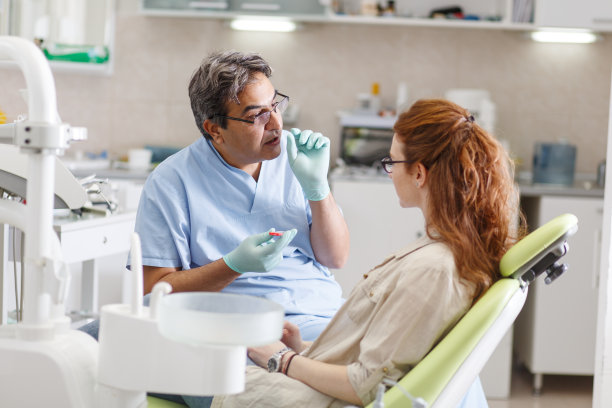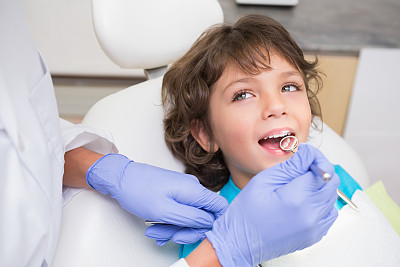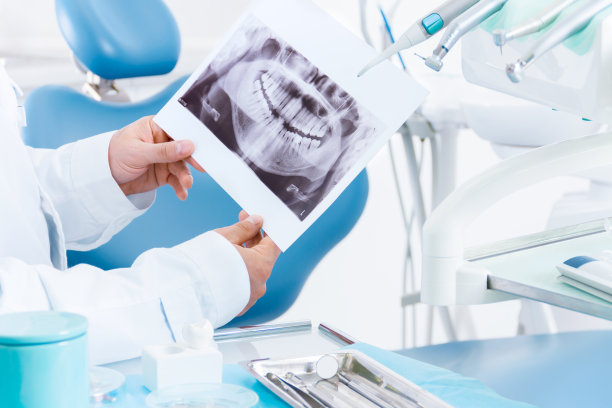Summary: Dental filling procedures are essential for maintaining oral health, but proper aftercare is crucial for achieving optimal results. This article outlines essential guidelines that patients should follow after receiving a dental filling. It covers the importance of dietary restrictions, dental hygiene practices, recognizing potential complications, and the significance of regular dental check-ups. By adhering to these guidelines, patients can ensure the longevity of their dental work and enjoy a healthier, brighter smile.
1. Dietary Restrictions for Optimal Care

After receiving a dental filling, its important to be mindful of your diet. In the first 24 hours, you should avoid consuming any hard, sticky, or chewy foods that could stress the newly filled tooth. These foods pose a risk of dislodging the filling, making it less effective.
Additionally, hot beverages and extremely cold foods should be avoided immediately following the procedure. Your tooth may be sensitive after a filling, and extreme temperatures can exacerbate this discomfort. Therefore, opting for softer foods at a moderate temperature will help ease any sensitivity.
Finally, steer clear of sugary snacks for a few days after your filling. Sugar fuels bacteria that can lead to tooth decay, which is the last thing you want so soon after a dental procedure. Focusing on nutritious options will promote quicker healing and maintain overall dental health.
2. Maintaining Dental Hygiene Essentials
Good dental hygiene after a filling is essential. Although it may be tempting to neglect brushing in the first few hours post-procedure, its crucial to resume your dental care routine as soon as possible. Use a soft-bristled toothbrush to gently clean your teeth, particularly around the filled area.
Flossing also remains a necessary part of your daily routine. However, you should take extra care when flossing near a new filling to avoid dislodging it. If youre unsure about how to floss without risking damage, consult your dentist for proper techniques.
Avoid mouthwash that contains alcohol in the first few days post-filling, as this can irritate any potential sensitivity in the newly filled tooth. Instead, stick to a gentle mouth rinse or warm salt water to soothe your gums and keep your mouth clean without compromising your filling.
3. Recognizing and Addressing Complications
After having a dental filling, it’s crucial to monitor any complications that may arise. Sensitivity to temperature or pressure can occur as a normal response, but if it persists beyond a few days, you should consult your dentist. Persistent sensitivity can indicate that the filling is too high or that there may be underlying issues.
It is also important to watch for signs of infection, such as persistent pain, swelling, or unusual discharge from the filled area. These symptoms warrant an immediate visit to your dentist to assess the filling and surrounding tissues.
If you notice that the filling feels rough or is irritating your tongue or cheeks, this may require a quick adjustment by your dentist. Ignoring discomfort can lead to additional complications, so it’s advisable to address any concerns promptly.
4. Importance of Regular Dental Check-Ups
Following a dental filling, regular check-ups become even more critical. These visits allow your dentist to monitor the condition of the filling and ensure that no further decay is developing. It’s advisable to schedule an appointment for a follow-up within a few weeks after the procedure.
During these check-ups, your dentist can also evaluate your overall dental hygiene and provide personalized advice on maintaining your oral health. This can help prevent future issues, preserving both your fillings and natural teeth.
Additionally, regular professional cleanings will help remove plaque and tartar that your at-home routine may miss. By reinforcing your dental care with these appointments, you more effectively safeguard your dental investment, ensuring your smile remains healthy and vibrant.
Summary:
In conclusion, postoperative care after a dental filling is paramount for ensuring the longevity and effectiveness of the procedure. Following the outlined dietary restrictions, maintaining proper dental hygiene, recognizing possible complications, and attending regular dental check-ups can significantly contribute to a healthier smile.
Make your smile shine bright and healthy through proper care and attention! This article is compiled by Vickong Dental and the content is for reference only.
Vickong Dental
Vickong Dental is a large medical group established in Hong Kong in 2008 by professors from well-known medical universities in Guangdong and Hong Kong, as well as medical doctors from key national '985' universities (including Master's supervisors and senior professors). The chain of branches brings together expert dentists with PhDs and Master's degrees from Hong Kong and Mainland China, committed to providing high-quality dental treatment.
"Vickong Dental Practices the University Motto of 'Healing and Serving Society,' with a Stable Operation for Sixteen Years. It Has Been honored with Hong Kong Enterprise Leaders's Choice,' and is a Global Trusted Implant Center for the Nobel Implant System. Recommended by Hong Kong Metro Broadcast and Guangdong Television, it Serves Customers from Over Thirty Countries and Regions, Gaining the Trust and Favor of Citizens from the Guangdong-Hong Kong-Macau Greater Bay Area and Surrounding Cities.

Thousands of customers' unanimous praise
The most recognized and highly recommended dental service by customers in the Guangdong-Hong Kong-Macau Greater Bay Area
We Ensure You Receive Detailed Care and Attention Here
Hong Kong standards, Shenzhen prices, Your Trusted English-speaking dentists

Vickong Dental Medical-Grade Instrument Disinfection Process
Vickong Dental Medical-Grade Instrument Disinfection Process

Vickong Dental Chain: A Warm and Comfortable Environment for Treatment






Appointment Hours

Q&A
Why choose Vickong Dental?
Vickong Dental practices the university motto 「Medicine to Benefit Society」, with each branch bringing together highly qualified dentists with doctoral and master’s degrees from Hong Kong and the Mainland, and has maintained seventeen years of steady operation。Recipient of 「2024 Hong Kong Enterprise Leaders Brand」, 「2025 Hong Kong Enterprise Leaders Brand」, a Nobel Biocare Global Trusted Implant Center, and a brand recommended by Metro Radio Hong Kong and Guangdong TV。
To date, we have served customers from more than thirty countries and regions,earning exceptionally high word-of-mouth recognition and trusted recommendations from residents across the Guangdong-Hong Kong-Macao Greater Bay Area and surrounding cities
We have eight major branches in Zhuhai、Shenzhen,and a consultation and service assurance center in Hong Kong,so you can book a free consultation at any time for any questions,which is very reassuring.
If I do not accept the quotation after the CT scan, will I be charged??
No! As long as the actual treatment has not started, you will not be charged any fees.
Will there be any additional charges during the treatment process?
No, there won’t be any additional charges. Before treatment begins, we will clearly explain the treatment plan and its corresponding fees. Only after the patient agrees and signs the consent form will we proceed with the dental service.
Can I pay in Hong Kong dollars?
Yes. Vickong Dental accepts payment in Hong Kong dollars. The amount will be converted based on the exchange rate of the day, and the applicable rate will be clearly communicated to you in advance.
Can I reschedule my appointment at any time?
Yes. Please contact us via **WeChat** or **WhatsApp** as early as possible, providing your original appointment time and details, along with your preferred new date and time slot for rescheduling.













